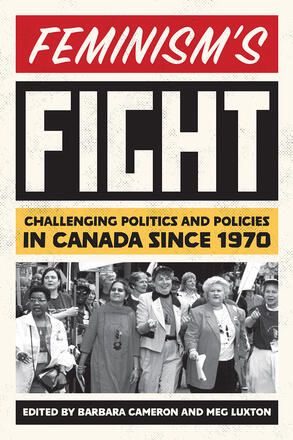Part 1: Challenging Dominant Paradigms
1 From the Status of Women to Gender Justice for Women / Barbara Cameron and Meg Luxton
2 Sex Discrimination in the Indian Act: A Tool of Forced Assimilation / Shelagh Day and Pamela Palmater
Part 2: Reclaiming the Economy
3 Feminism Meets Macroeconomic Policy / Barbara Cameron
4 Never Done: The Challenge of Unpaid Work in the Home / Meg Luxton
5 Fifty Years for Farm Women: Gender and Shifting Agricultural Policy Paradigms in Canada / Amber J. Fletcher
Part 3: Reimagining Policy
6 Policy Discourses on Sexual Violence: From the Royal Commission to the (Post-)Neoliberal State / Lise Gotell
7 Responsibility and Reproduction after the Royal Commission / Alana Cattapan
8 The Royal Commission and Immigration and Citizenship: A Missed Opportunity? / Christina Gabriel
9 Securing Income, Sustaining Livelihoods: Th e Royal Commission, Social Reproduction, and Income Security / Ann Porter
Part 4: Reframing Representation
10 Strategic, Cynical, and Sinister Representation: Reconceptualizing and Recasting Women’s Representation / Alexandra Dobrowolsky
11 The Royal Commission and Unions: Leadership, Equality, Women’s Organizing, and Collective Agency / Linda Briskin
Part 5: Reforming Institutions
12 Equality Instituted? Gender Equity, Women’s Rights, and Human Rights Commissions / Nicole S. Bernhardt
13 Federalism for the Twenty-First Century: Feminism and Multilevel Governance in Canada / Tammy Findlay
Index
